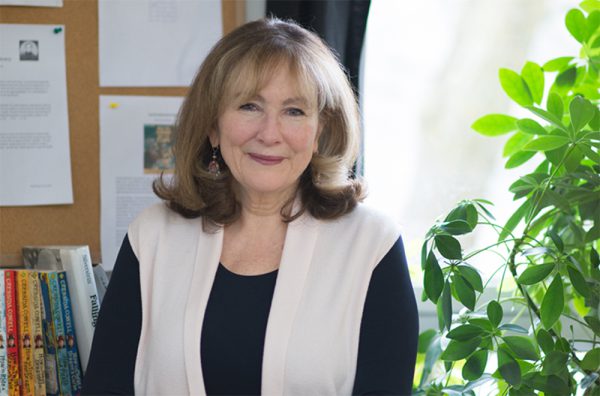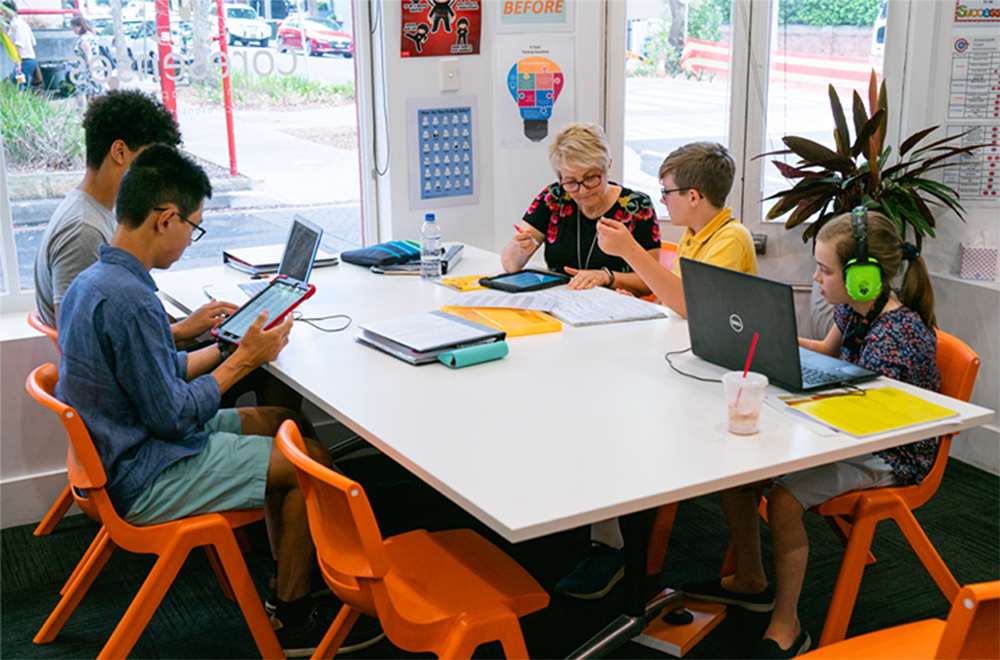Barbara Arrowsmith-Young is recognised as the creator of one of the first practical applications of the principles of neuroplasticity to address learning difficulties and her program is implemented in over 90 schools internationally. F2L spoke with her about her program in Australia and the new edition of her book, The Woman who Changed her Brain.
Arrowsmith launched the Arrowsmith Program in 1978 as a result of her quest to find a solution to her significant learning difficulties. From grade one onwards she had struggled considerably in school and in the late 1950s was identified as having a ‘mental block’. Following her research into neuroplasticity she created exercises to address her learning difficulties, essentially to change her brain. “It was hard, hard work but then I experienced the results where I could now do things that I had never been able to do previously in my 26 years,” she said.
“Borne out of my own struggles, I wanted to help others who were also struggling with learning difficulties. That’s when I started my first Arrowsmith School in Canada and then, at a certain point, I decided to train educators to be able to deliver it around the world to make it accessible.”
One of those trainers is Maria Commisso, director of learning at CoreSenses, an Australian company that provides the Arrowsmith Program, (pictured). She trained in Canada, before establishing and administering the first Australian primary school Arrowsmith Program at an independent school in 2013. “Ninety-eight students across a broad age range of aptitudes worked with the program under my guidance. All of these students developed improved self-confidence, re-engaged with learning and improved their academic results. A number of the students went on to improved academic performance at university,” she said.
According to Commisso, the program assists people who have difficulty with learning in reading, maths, logical reasoning, visual memory, writing, comprehension, executive function, auditory memory, dyslexia, auditory processing, attention, dysgraphia and dyscalculia. She said a number of international academic studies over the past several years concluded that the Arrowsmith Program is effective in improving the brain’s cognitive ability.
New research
Arrowsmith-Young said new research from Cambridge University in the UK revealed that the incidence of learning difficulties in children and adolescents is 13 to 40 per cent of the population. “There is more awareness of the impact of having a learning difficulty, including the social, emotional and academic cost to an individual. People are hunting for a range of solutions to their children’s learning challenges.”
Latest research the University of British Columbia in Canada into the program showed children with specific learning difficulties demonstrated significant improvements by training their brains using neuroplasticity techniques. The peer reviewed research, published last October Learning: Research and Practice, examined the Arrowsmith Program and its capacity to help children with learning difficulties improve academic skills and cognitive abilities including reading, maths, spelling, memory, attention, processing speed and reasoning.

Arrowsmith, pictured, is touring Australia this month to promote the third edition of her book, The Woman who Changed her Brain. “New to this edition is a chapter on the research that is being conducted on my work by researchers at The University of British Columbia, Southern Illinois University in the US and University Camilo José Cela in Spain. They have been investigating the academic, cognitive, social and emotional changes as students go through the Arrowsmith Program as well as changes in the brain. Now, in my mind, my book is complete.”
Currently 19 schools are running the program in Australia. According to Arrowsmith it provides a solution for students within that school who have learning difficulties. “Students in the program at Holy Trinity Parish in Melbourne, for example, showed more academic growth over the school year than students in regular classes on standardised measures of reading comprehension and maths. We have over 20 studies showing these types of outcomes. If someone has a learning difficulty it really has an impact on the individual’s ability to realise their potential. This work gives the individual strengths where they have been challenged and that change the trajectory of their life.”
Click here to find further information about research into the Arrowsmith Program.
We value your voice and invite readers to ‘Tell us what you think’ about places, events or programs that are helpful to our online community. We welcome responses from people of all ages. Please submit your stories to: kymberly@intermedia.com.au
Subscribe to the F2L newsletter
Join over 7,500 subscribers for the latest news, products, services and technologies for the disability and rehabilitation sectors. Subscribe here.

